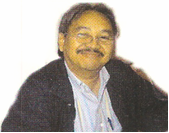A woman in Ohio has given birth to her second set of triplets. 
Victoria Lasita and her husband Tim conceived both sets naturally, without fertility treatments that increase the chance of multiple pregnancies.
"Holy smokes. Do you know what the odds of that are?" fertility expert Dr Glen Hofmann told the Cincinnati Enquirer.
The chances of conceiving one set of triplets naturally were about one in 8,000, making the odds of having them twice far higher, he said.
Having triplets once did not affect the chances of having triplets a second time, added Dr Hofmann, medical director of the Bethesda Center for Reproductive Health and Fertility.
Casey Alexander was the first born at 1357 local time on Wednesday at just 4lb 2.5oz (about 1.9kg).
He was followed by Caden Bradley, at 4lb 13.5oz (about 2.2kg) and Carson Charles, at 4lb 9.5oz (just over 2kg).
![]()
![]() You take what God gives you
You take what God gives you ![]()
Their father, Tim, who witnessed the Caesarean birth, said: "Everybody seems to be doing well."
He said it was still too early to know when the babies will be ready to go home and join their older siblings, Jessica, Jillian and Brian, who will soon turn four.
The Lasitas have been married six years and have three grown children from previous marriages.
But they decided they'd like "one more" after the birth of the triplets.
"I guess we should have been more specific and said one more child, not one more set," Victoria said.
The Lasitas will be changing about 150 nappies a week for the new triplets.
Victoria said: "You take what God gives you. And this is what he's decided we can handle."
 Hannah's triplets were born from two eggs. Photo: SWNS |
A UK woman with two wombs is believed to be the first in the world with the condition to give birth to triplets.
Hannah Kersey, 23, from Northam in Devon, had identical twins Ruby and Tilly, who were born from one womb, Grace, who was born from the other.
The girls had to stay in hospital for nine weeks after being born seven weeks early by Caesarean, but have now returned home to their parents.
The odds of having triplets from two wombs are about 25 million to one.
The chances of a woman with two wombs having twins or two separate births is estimated to be five million to one.
Against the odds
Only 70 women in the world are known to have been pregnant in two wombs, reports suggest.
The condition, which is actually called uterus didelphys, affects one in 1,000 women in the UK.
In Miss Kersey's case, the babies were conceived from two eggs - one in each womb - which were fertilised at the same time by two different sperm.
![]()
![]() There are very few world firsts nowadays, but it may be one
There are very few world firsts nowadays, but it may be one ![]()
One egg then divided, producing identical twins, while the other developed into a single baby.
Hannah and her partner Mick Faulkner said they were "over the moon" at how healthy and happy the girls are.
Hannah said: "They are three lovely and incredible children, all with very different personalities.
"Gracie seems to be the ringleader - maybe because she grew up in her own womb.
"Ruby is very laid back and quiet, happy to sit and watch what is happening around her.
![]()
"Tilly, who was the baby that struggled to survive inside me, is a real fighter, wanting to keep up with her sisters and not be left out."
Dr Simon Grant, a consultant at Southmead Hospital who delivered the babies, said: "There are very few world firsts nowadays, but it may be one."
Mr Ellis Downes, consultant obstetrician and gynaecologist at Chase Farm Hospital in London, said: "It is quite amazing. Women with two wombs have conceived a baby in each womb before but never twins in one and a singleton in the other."
Leading expert Mr Peter Bowen-Simpkins added: "For a woman to spontaneously conceive and give birth in this way is a real rarity. They have been extremely fortunate."
Mr Richard Warren of the Royal College of Obstetricians and Gynaecologists said most cases occur naturally, but the condition can run in families.
Hannah's mother and sister also have two wombs.







































